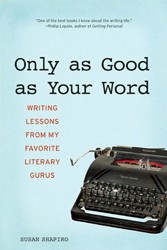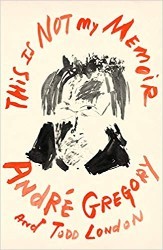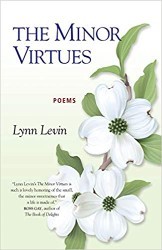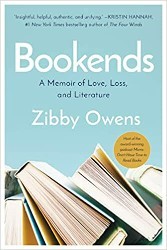It’s impossible to know anyone fully. Ironically, it can be even harder when they’re a writer. Despite Justin Kaplan’s plethora of nonfiction writing, including his Pulitzer Prize and National Book Award-winning biography of Mark Twain (Mr. Clemens and Mark Twain), Hester Kaplan doesn’t crack open her father’s work until a year after his death, tracing his story, upbringing, and literary footprints in Twice Born. She’s only marginally closer to the answers she’s seeking within her lovely and tender memoir/biography. And that’s the point.
Kaplan’s childhood in Cambridge is both steeped in the literary world and yet closed-off: in their quiet suburb, children didn’t play in the streets while the resident writers and artists were at work in their studies. Her mother was also a novelist, and the Kaplans integrated themselves within their community’s intellectual hotspot — John Updike and John Irving were invited over for dinner, Julia Child was one door down, and Kurt Vonnegut was admonished for smoking in their living room. Despite the revolving door of literary titans Justin is exposed to, he eludes zealotry and bows out of elitist groups like the Tavern Club, Boston’s top social and business group. Focused on his work, Justin is a master at choosing the right word at the right time, and his correspondence shows this critical eye and skillful pen. Here’s how he describes deciding to take the plunge into writing in a letter to a girlfriend: “Another stage of mystification has begun… I think I may be approaching a point of honesty about what I really want to do; and it involves some pain and some fright.”
The child of a writer has much to write about — Hester Kaplan does so with gleaming insights into her father’s rhythms. Sometimes they are inexplicable, like when he bristles at being called “dad.” When Kaplan breaches a social contract and asks Justin to send her manuscript to his agent, it’s only years later when an assistant calls and says they found it on a shelf; should they throw it out? He signs his own book to Hester so impersonally (“To the Stein/Kaplan family, with love”) it borders on rudeness. Father and daughter swap writing rarely, and awkwardly. Justin once hurries her into a room during one of their parties to discuss one of her short stories, only to admit he promised her mother not to discuss it without her. “My father’s choice every day, except for this brief and foiled moment, not to step, out of fear of upsetting his marriage, into a sharper light with his daughter,” Kaplan writes.
At times, Kaplan’s reimagined conversations with her father (especially one where he begins his book, “sun falling over his hands”) feel slightly overwrought. Like many authors, she occasionally seems to idealize the act of writing — although a less cynical reader would certainly find the heart in these small doses.
The Mark Twain angle is sort of a red herring — Kaplan pulls from Justin’s notes and correspondence as much as she does from his book. And hers is better for it; what we get is a complicated portrait of a hard-working, silent man, a devoted father who also walled himself off everywhere but the page.
Sam Franzini is an editor at The Line of Best Fit and a staff writer at Our Culture Mag and Northern Transmissions. His journalism has been featured in the Los Angeles Review of Books, The Brooklyn Rail, Hobart, Soft Union, and NYLON, and his fiction has been published in Maudlin House, After Dinner Conversation, and Cosmorama.





